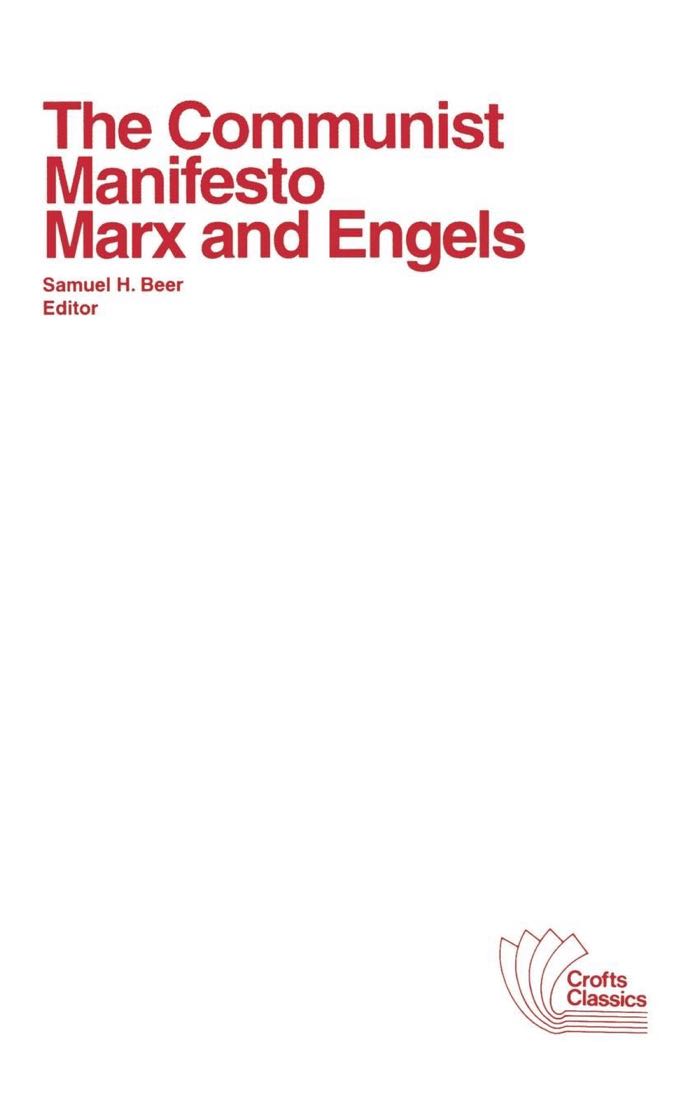The Communist Manifesto
Reviewed date: 2005 Jul 20
46 pages
Communism as proposed by Marx in The Communist Manifesto is--in my understanding--an economic system based on Karl Marx's misguided theory of psychology. Communism is justified as necessary for the self-esteem of men; the buying and selling of labor in a capitalist society destroys the self-esteem of a man because he must sell himself for the materials things needed to live. That destroys a man's self-worth, according to Marx. A man can only be free when his self-esteem is healthy, which can only happen when he receives freely the material possessions needed for life.
Thus, according to Marxist theory, private ownership of the means of production is contrary to the spirit of mankind. Note that this does not necessarily mean the abolition of all types of property. Privately owned consumer goods are possibly acceptable, but private ownership of the means of production, of capital, is wrong. Capital is land, factories, businesses, and other items essential to the creation of wealth.
Since in most societies the means of production are privately owned, this results in a class struggle between the owners of the capital (the businessmen, the bourgeoisie) and the workers (the employees, the proletariat.) This class struggle is inevitable according to Marxist theory, because the bourgeoisie will oppress the proletariat and render them nothing more than wage-slaves who earn only enough to keep from starving.
Marxism rejects the concept of "eternal truths, such as Freedom, Justice, etc., that are common to all states of society." Marx responds to the critics who object to the abolition of private property:
Don't wrangle with us so long as you apply, to our intended abolition of bourgeois property, the standard of your bourgeois notions of freedom, culture, law, etc. Your very ideas are but the outgrowth of the conditions of your bourgeois production and bourgeois property.
The brazen arrogance of Marx knows no bounds: "The charges against communism made from a religious, a philosophical, and generally, from an ideological standpoint, are not deserving of serious examination."
Nowhere in The Communist Manifesto does Karl Marx talk about a man's rights. How does one advocate a system of government, economics, and of life, without discussing the rights of men? Marx's only mention of the subject is the unsupported accusation that all the ethical and moral system ever devised are the product of bourgeois thinking. Perhaps, perhaps. But Marx is unable to offer any ethical framework upon which to put Marxism. In fact Marx advocates the complete violation of basic human rights: the move to Communism "cannot be effected except by means of despotic inroads on the rights of property, and on the conditions of bourgeois production." He advocates the seizure of all land, abolition of the right of inheritance, centralization of credit in a national bank, state ownership of all means of communication, and forced labor including "the establishment of industrial armies, especially for agriculture." Marxism is an egregious violation of personal liberty, free speech, and property ownership.
In this sense, the theory of the Communists may be summed up in the single sentence: Abolition of private property.
